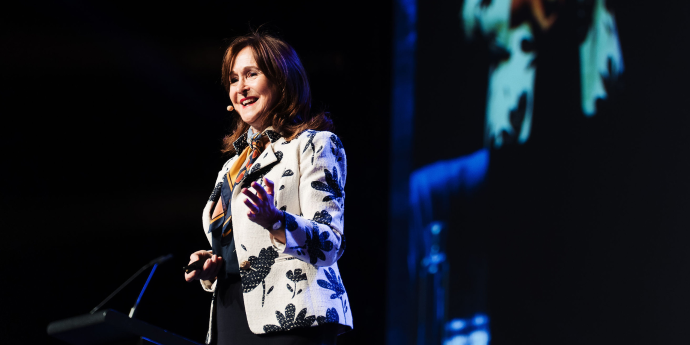Why microaggressions could send women off the glass cliff
Burn out and distress might be a result of microaggressions and could be derailing women from getting to the top – and staying there.
2024 IOD LEADERSHIP CONFERENCE OUTTAKE

Australian director Debby Blakey addressed governance challenges at the recent IoD's Leadership Conference, including lessons from the Juukan Gorge disaster.
On May 24, 2020, Rio Tinto blew up Juukan Gorge, a site of immense cultural significance to the Puutu Kunti Kurrama and Pinikura peoples, with evidence of 46,000 years of continuous occupation. Despite regulatory approvals being in place, this act of destruction revealed a devastating gap between the company's stated values and its actions. "Rio Tinto forgot their social licence to operate," Blakey emphasised, pointing out that policies alone are insufficient if not backed by genuine commitment and ethical actions.
Blakey, who has been the CEO of HESTA since 2015, leads an $83 billion superannuation fund that manages the retirement savings of over one million members, redominantly in the health and community services sector. HESTA is a pioneer in sustainable and ethical investment. Blakey’s insights drew from her role not only at HESTA but also as the President of the Australian Council of Superannuation Investors, making her a respected voice in the field of governance and ethical investing.
Blakey used the Juukan Gorge incident to highlight the importance of bridging the say-do gap. She explained how this disconnect can erode stakeholder trust, which is painstakingly built over time but can be destroyed in an instant.
Blakey’s vision for governance extends far beyond compliance. At HESTA, active ownership is a cornerstone. This means engaging deeply with companies to influence their strategies and practices, particularly around sustainability and ethical governance. "We see ourselves as having a seat at the table and a responsibility to advocate strongly on behalf of our members," Blakey said, highlighting how HESTA uses its influence to push for substantial policy shifts in high-carbon industries, rather than merely divesting from them.
HESTA’s approach to active ownership involves staying invested in companies and advocating for credible transition strategies toward a low-carbon future. This proactive stance ensures that the companies they invest in are held accountable and encouraged to adopt sustainable practices. There are exceptions, however, as Blakey noted. HESTA has divested from companies involved in the tobacco industry and those managing offshore detention centres, where engagement was not possible or effective. Blakey’s narrative underscores that true governance requires more than passive oversight – It demands active, engaged leadership that aligns company actions with its ethical commitments.
Blakey called for courageous leadership, urging directors to challenge the status quo and adopt a forward-thinking approach to governance. "Real courage is about challenging the status quo and envisioning a different future," she asserted. In today’s rapidly changing world, directors must make bold decisions that prioritise long-term sustainability and ethical integrity.
At HESTA, this courage is reflected in ambitious goals, such as achieving net-zero emissions by 2050 and promoting gender equity through the 40:40 Vision initiative. These efforts are not just about compliance, but about leading the way in creating a fairer, more sustainable future.
Blakey concluded with a powerful reminder of the potential for directors to make a significant impact: “We all have more power than we realise, and now is the time to choose our future.” Her words serve as a call to action for directors to lead with purpose and integrity, shaping a future where governance is deeply intertwined with social and environmental responsibility.
Want to hear more and get insights like these? Registrations are now open for the IoD 2025 Annual Leadership Conference 11 – 12 September 2025: Register now